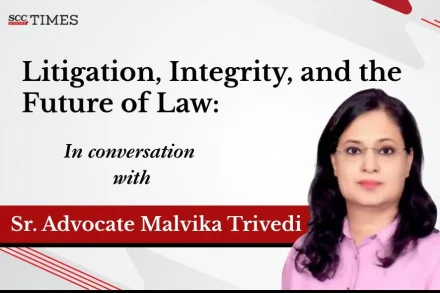
Litigation, Integrity, and the Future of Law: In conversation with Senior Advocate Malvika Trivedi
Interviewed by Shaleen Bareja

Interviewed by Shaleen Bareja
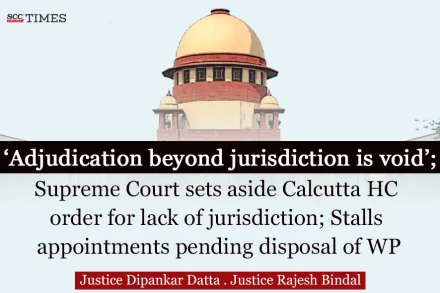
Supreme Court, without delving into the merits of the rival claims, set aside the impugned order on the limited ground of lack of jurisdiction and ordered a remand. Consequently, the writ petition was revived and placed back on the file of the High Court.
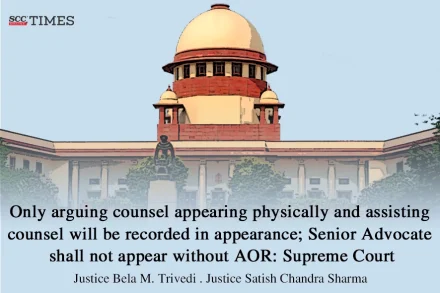
“A right of an Advocate to appear for a party and to practice in the Courts is coupled with the duty to remain present in the Court at the time of hearing, and to participate and conduct the proceedings diligently, sincerely, honestly and to the best of his ability. Rights and duties are two sides of the same coin, and they are inherently connected with each other.”
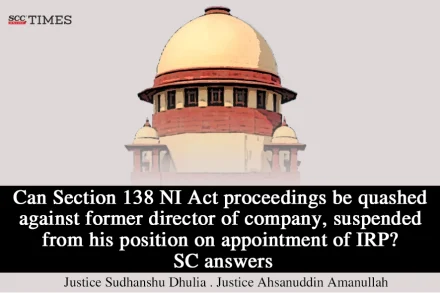
The immunity granted by the moratorium order issued under Section 14 of the IBC can only be obtained by a corporate debtor and not by a natural person such as the present accused, who was the Director of the corporate debtor.
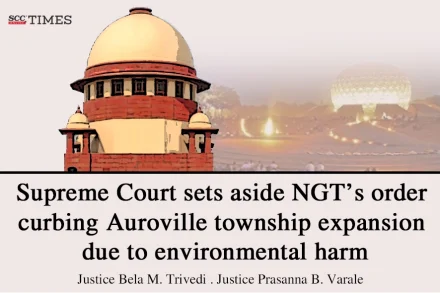
“There is a need for “Sustainable Development” harmonising and striking a golden balance between the right to development and the right to clean environment”.
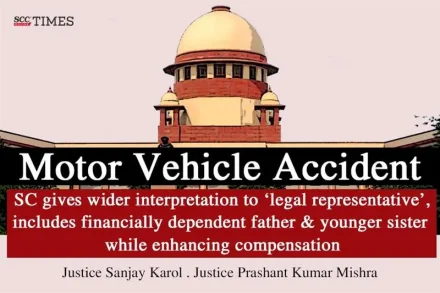
A legal representative is one, who suffers on account of death of a person due to a motor vehicle accident and need not necessarily be a wife, husband, parent or child.
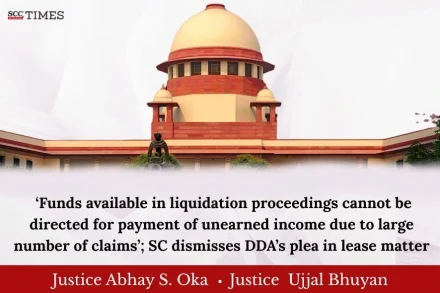
The Court also held that the auction purchaser was not entitled to either ownership or leasehold rights in respect of the plot and could not claim to be a lessee as the lease in terms of the lease agreement entered into by the DDA was never executed.
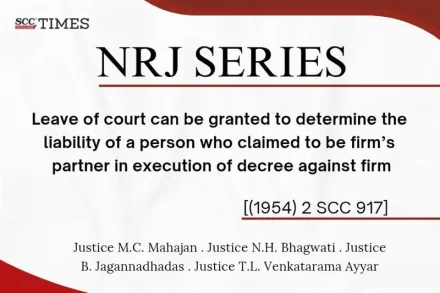
This report covers the Supreme Court’s Never Reported Judgment on execution of decree against firm dating back to the year 1954.
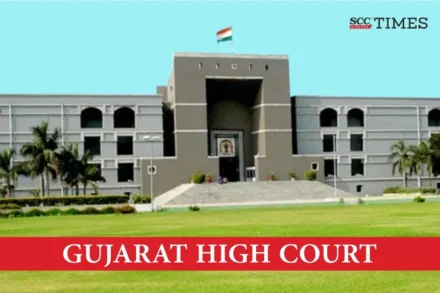
“The only aim or intention of the petitioner was to get a compassionate appointment for her son in one way or the other, i.e., without disclosing the true and correct facts regarding the financial condition of her family.”
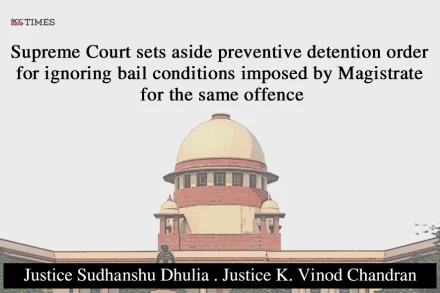
Supreme Court noted that nothing is stated by the detaining authority as to why the conditions are not sufficient to prevent the detenu from engaging in further activities of smuggling; which was the specific ground on which the conditions were imposed while granting bail.
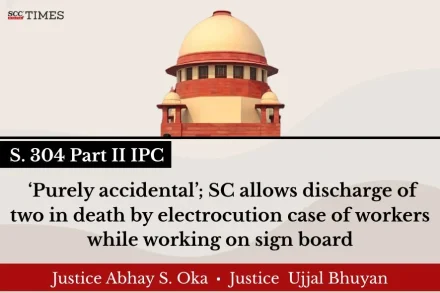
“The accused persons had no knowledge that by asking the two employees to work on the sign board as part of the work of decoration of the frontage of the shop, such an act was likely to cause the death of the two deceased employees.”
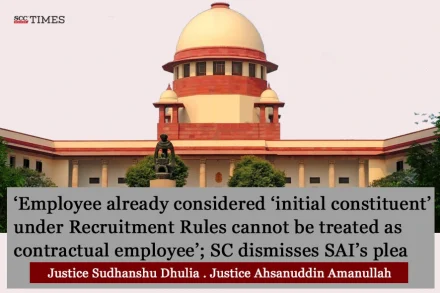
The Court upheld the Central Administrative Tribunal’s decision entitling appellants to be considered as part of the “initial constitution” of Sports Authority of India (SAI) as laid down in the 2022 Rules.
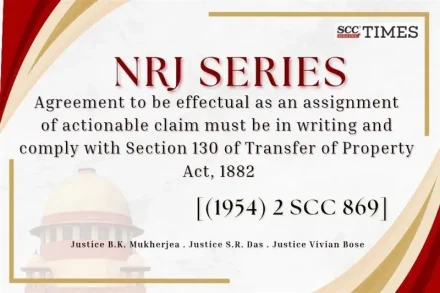
This report covers the Supreme Court’s Never Reported Judgment on actionable claim dating back to the year 1954.
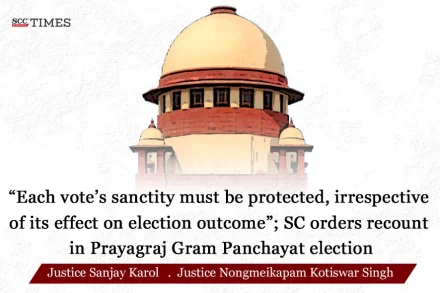
“Right from the inception of democratic rule, universal adult franchise has found its place in our system of governance. Each election upholding these cherished values of public participation, equality and integrity of the vote is a testament to the vision of the founders.”
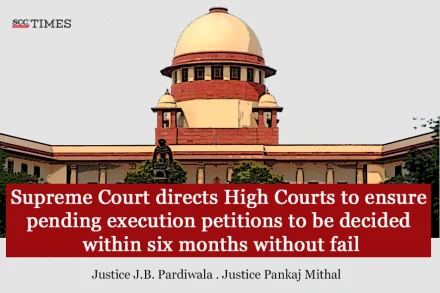
“It is said that the woes for the litigants in this country start once they are able to obtain a decree in their favour and are unable to execute and reap its fruits for years together.”
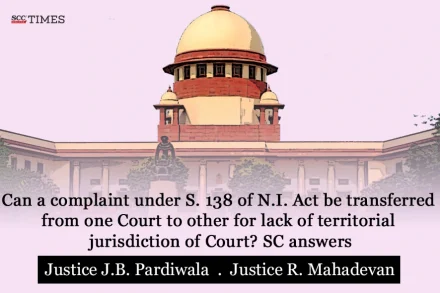
For the purpose of transfer of any case or proceedings under Section 406 of the CrPC, the case must fall within the ambit of the expression “expedient for the ends of justice”.
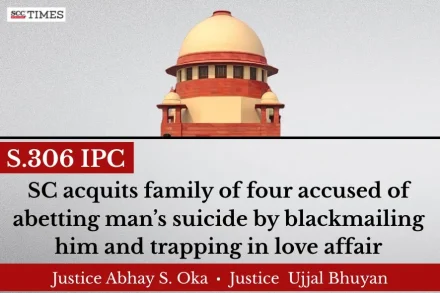
“Even if the suicide note is taken as correct and genuine, there was no act of incitement on the part of the accused persons proximate to the date on which the deceased committed suicide.”
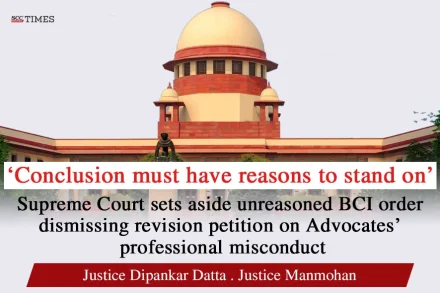
Supreme Court reiterated that that an order of affirmation may not require elaborate reasons as required in the case of an order of reversal, but it does not mean that such order of affirmation need not contain any reason at all.
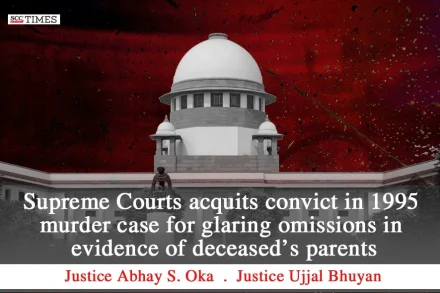
“The motive for the commission of the offence was absent and the same was very relevant as the case was based on circumstantial evidence.”
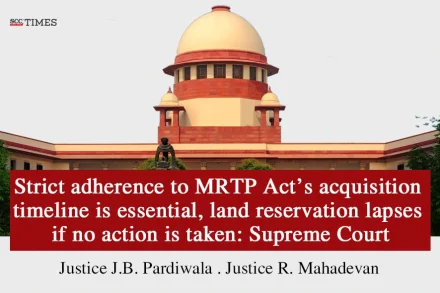
“It does not make any good sense to keep a plot reserved in a development plan for the past 33 years. The Authority did not allow the original owners to use the land and are now not permitting even the purchasers to utilize the land.”